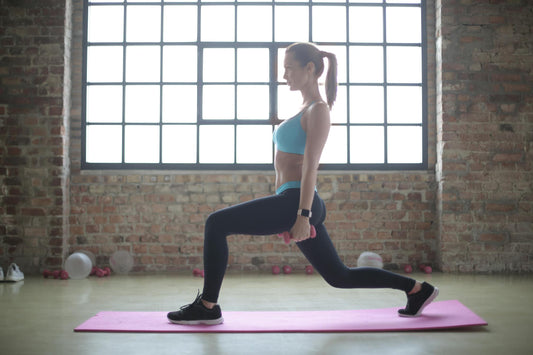There are a few fundamental truths about your health that you already understand: Consume more water! Sleep more often! Eat healthy! Exercise! However, it turns out that there is a lot more to it than just that, and we're ready to wager that you haven't uncovered all of the possible factors.
For instance, did you know that a daily workout of just 10 minutes might be just as effective as one lasting an hour? Or that consuming particular foods can improve your mood? We've compiled the 10 amazing (and helpful!) facts to help you master your health and fitness, and it will completely transform how you live.

Type 2 diabetes might be exacerbated by stress at work.
A 2014 study published in the journal Diabetes Care found that, independently of other lifestyle factors like weight and activity levels, job stress is a risk factor for type 2 diabetes. The authors of the study conclude that "such relationship between job strain and diabetes is scientifically feasible since stress reaction boosts release of the hormone necessary for fight-or-flight situations, cortisol."

Sitting up too straight may strain your spine.
According to Dr. Neel Anand, professor of orthopaedic surgery and director of spine trauma at Cedars-Sinai Spine Center in Los Angeles, California, "Your mom wasn't totally wrong; hunching can certainly be bad for your back, but the inverse is also accurate. Strain might also result from maintaining a straight posture too long without moving. Make sure your chair is at a height where your knees are at a 90-degree angle, your feet can rest flat on the floor, and you have adequate lower back support if you work in an office environment. To avoid stiffness or injury, get up, stretch, and go for a little stroll numerous times throughout the day."

Being optimistic can make you live longer.
A positive outlook may do more than just make your day happier. A number of studies, according to Harvard Health, have proven that having a "glass-half-full" outlook on life is linked to a longer lifespan. According to a 1999 study that appeared in JAMA Internal Medicine, optimistic patients who had undergone coronary artery bypass surgery had a 50% lower chance of needing to be readmitted to the hospital during the next six months than cynical patients.

Your health can be saved with daily exercise of just 10 minutes.
If you don't believe you have time to exercise, it might be time to reconsider: According to a 2011 study published in the Journal of Obesity, high-intensity interval training sessions lasting as little as 10 minutes can be beneficial for losing fat, lowering insulin resistance, and enhancing general health. The new maxim is that brief bursts of intensive exercise can be as as helpful as longer workouts, even though more conventional workout lengths of 30 to 60 minutes may increase those advantages.

Walking is almost as good for you as running.
A 2014 study indicated that brisk walking can be almost as beneficial as running in reducing rates of hypertension, diabetes, and high cholesterol. The study was published in the journal Arteriosclerosis, Thrombosis, and Vascular Biology. It's important to keep your heart rate up and to travel the same distance however.

In fact, running could harm your health in the long run.
The benefits of running for your general health may be disputed by your back and joints, though. Running on hard ground is really difficult on your joints and spine, says Anand, whether it's concrete or paved asphalt.
What can you therefore do about it? The orthopaedic surgeon advises mixing up your exercise and, when possible, running on grass or dirt trails. As the softer terrain yields more and demands more energy, strength, and effort to push ahead on, he continues, you'll also gain from building stronger legs.

The heart benefits from laughter.
It's common knowledge that people with medical illnesses can benefit greatly from using humour as a coping mechanism. However, a 2016 study that was published in The Journal of Epidemiology found that it might also directly result in a healthier heart. Male and female study participants over 65 who said they laughed every day had significantly decreased rates of heart disease and stroke.

Your mental health will benefit from meditation more than a vacation.
According to Harvard Health, meditating is just as rejuvenating as a weeklong vacation. Three groups of 91 female volunteers were evaluated by researchers from the Netherlands in 2018: those who regularly meditated, those who had never meditated, and those who would completely abandon meditation in lieu of a week-long vacation.
The third group of "holiday participants" participated in health lectures and outdoor activities, while the first two groups agreed to complete 12 hours of mindfulness training during a typical workday. Whereas the effects of reduced stress and higher mood were noted by all three groups, the people who continued their meditation practise demonstrated benefits 10 months later, while the vacationers returned to their regular states following their excursions.

You may put on weight as a result of your sleep routine.
The top of your wellbeing to-do list should include getting a good night's sleep, along with healthy eating, staying hydrated, and being active. Lack of sleep or keeping an irregular sleep schedule was revealed to be an independent risk factor for weight gain in a 2010 study that was published in the journal Environmental Health Perspectives. This adds to a vicious cycle whereby poor sleep hygiene causes weight gain, which raises the risk of sleep apnea or other sleep disorders, which raises the risk of further weight gain.

Text-neck is real.
You've probably heard of "text-neck" by now; it's a cervical spine strain brought on by the continual angling of our necks downward to gaze at phones and other gadgets.
According to Anand, "the head at a 60-degree angle compels the cervical spine to support the equivalent of 60 pounds." "To put such figures into perspective, your neck is made in such a way that it can support your skull (which weighs about 12 pounds). Our necks are being compressed up to five times more than they were intended to by the torqued angles we're holding them at." It's time to cut back on devices and adopt better posture if you're feeling fatigued.
For more amazing tips and truths about health and wellness, follow us on Instagram.




